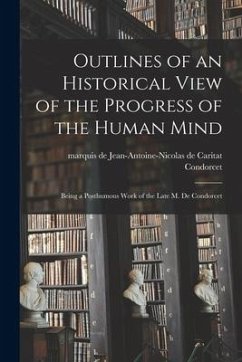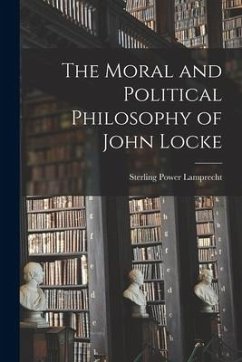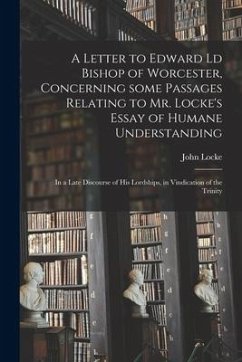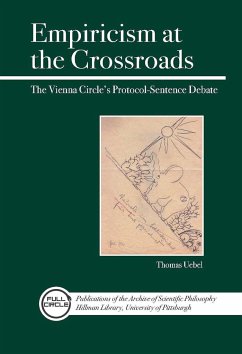
Posthumous Works Of Mr. John Locke (1706)
Versandkostenfrei!
Versandfertig in 1-2 Wochen
32,99 €
inkl. MwSt.

PAYBACK Punkte
16 °P sammeln!
The Posthumous Works of Mr. John Locke is a collection of essays, letters, and other writings by the renowned philosopher and political theorist John Locke, published posthumously in 1706. The book contains a variety of topics, including Locke's thoughts on education, religion, government, and the nature of human understanding. The essays explore the relationship between reason and faith, the role of government in society, and the importance of individual liberty. The collection also includes letters written by Locke to various correspondents, providing insight into his personal life and intel...
The Posthumous Works of Mr. John Locke is a collection of essays, letters, and other writings by the renowned philosopher and political theorist John Locke, published posthumously in 1706. The book contains a variety of topics, including Locke's thoughts on education, religion, government, and the nature of human understanding. The essays explore the relationship between reason and faith, the role of government in society, and the importance of individual liberty. The collection also includes letters written by Locke to various correspondents, providing insight into his personal life and intellectual pursuits. Overall, the Posthumous Works of Mr. John Locke is a valuable resource for anyone interested in the history of philosophy and political thought.This scarce antiquarian book is a facsimile reprint of the old original and may contain some imperfections such as library marks and notations. Because we believe this work is culturally important, we have made it available as part of our commitment for protecting, preserving, and promoting the world's literature in affordable, high quality, modern editions, that are true to their original work.






![Further Studies in Nature [microform]: a Posthumous Publication Cover Further Studies in Nature [microform]: a Posthumous Publication](https://bilder.buecher.de/produkte/66/66196/66196326n.jpg)
![The Meaning and Function of Simple Modes in the Philosophy of John Locke [microform] Cover The Meaning and Function of Simple Modes in the Philosophy of John Locke [microform]](https://bilder.buecher.de/produkte/65/65570/65570016n.jpg)




